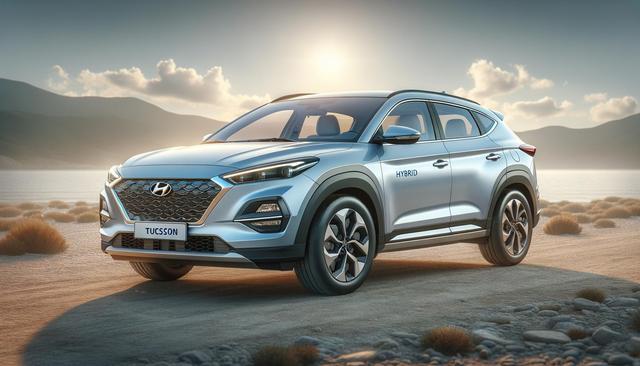What Are Hybrid Cars?
Hybrid cars are vehicles that use a combination of a gasoline engine and an electric motor to power the vehicle. Unlike fully electric cars, hybrids do not rely solely on electricity, which helps to extend their range and reduce dependence on charging infrastructure. This dual system allows the car to switch between or combine power sources based on driving conditions, resulting in improved fuel efficiency and reduced emissions. As environmental concerns grow and fuel prices fluctuate, many drivers are turning to hybrid vehicles as a compelling option.
The most common type of hybrid is the full hybrid, which can drive the vehicle using just the electric motor, just the engine, or both. Other types include mild hybrids, which use the electric motor to assist the engine but not to fully power the car on its own. Plug-in hybrids can be charged via an external power source and drive longer distances on electricity alone. Each variant offers unique advantages depending on driving habits and needs. For more insights and opportunities, visit https://go.jexli.com/postback?clickId={click_id}&payout={epayout}&p2={campaign}.
Benefits of Driving a Hybrid Vehicle
There are several practical reasons why hybrid cars have gained popularity among drivers. They are known for their ability to reduce fuel consumption, which can lead to significant savings over time. Additionally, they produce fewer emissions than traditional gasoline-powered vehicles, contributing to better air quality and a lower environmental footprint.
Here are key benefits of hybrid vehicles:
- Improved fuel efficiency
- Reduced greenhouse gas emissions
- Lower maintenance costs due to less engine wear
- Regenerative braking systems that extend brake life
- Potential tax incentives and rebates in some regions
Hybrid cars are designed with energy-efficient technologies that not only save money but also enhance the driving experience. The seamless transition between power sources provides a smooth and quiet ride, especially in stop-and-go traffic. Learn more about current options at https://go.jexli.com/postback?clickId={click_id}&payout={epayout}&p2={campaign}.
Performance and Driving Experience
One misconception about hybrid vehicles is that they sacrifice performance for efficiency. However, many modern hybrids deliver a responsive and enjoyable driving experience. Thanks to innovations in electric motor technology, hybrids often offer instant torque, which translates to quick acceleration from a stop. Additionally, the combination of electric and gasoline power can result in better overall balance and control on the road.
Many hybrid cars also come equipped with multiple driving modes, allowing you to choose between performance, economy, or electric-only operation. These features provide flexibility for different driving conditions and preferences. The regenerative braking system not only helps recharge the battery but also enhances control, especially in urban environments with frequent stops. For more information, check out https://go.jexli.com/postback?clickId={click_id}&payout={epayout}&p2={campaign}.
Cost Considerations and Ownership
While hybrid cars can have a higher upfront cost than their gasoline counterparts, the long-term savings in fuel and maintenance can offset this initial investment. Many models are competitively priced and come with warranties that cover hybrid components for extended periods. Additionally, owners may benefit from lower annual fuel expenses and fewer visits to the mechanic.
Here are a few financial aspects to keep in mind:
- Initial purchase price may be higher
- Lower fuel costs over time
- Reduced wear on brake systems and engines
- Some insurance providers offer discounts for hybrid owners
It’s also worth noting that resale values for hybrids can remain strong due to continued demand. As more consumers prioritize eco-friendly options, hybrid cars are likely to retain their appeal. Explore available models and pricing at https://go.jexli.com/postback?clickId={click_id}&payout={epayout}&p2={campaign}.
Is a Hybrid Car Right for You?
Choosing a hybrid vehicle depends on your individual lifestyle, driving habits, and environmental priorities. For commuters who spend significant time in traffic, the fuel efficiency of a hybrid can make a noticeable difference. Likewise, if you’re looking to reduce your carbon footprint without committing fully to an electric vehicle, hybrids offer a reliable middle ground.
Consider these questions when deciding:
- How far do you drive daily?
- Do you have access to charging stations (for plug-in hybrids)?
- Are you looking for long-term fuel savings?
- Is reducing emissions important to you?
Hybrid vehicles are continuing to evolve, with new models offering improved performance, advanced safety features, and enhanced connectivity. As the automotive industry shifts toward sustainability, hybrids are poised to remain a relevant and valuable option. To learn more and explore choices, visit https://go.jexli.com/postback?clickId={click_id}&payout={epayout}&p2={campaign}.
Conclusion: A Practical Step Toward Sustainable Driving
Hybrid cars represent a thoughtful balance between traditional and electric vehicles. They provide a practical solution for drivers looking to optimize fuel efficiency, reduce emissions, and enjoy modern driving features. Whether you’re a city commuter or a long-distance traveler, hybrids can meet a variety of needs while contributing to a more sustainable future. If you’re considering a vehicle that aligns with both economic and environmental goals, a hybrid car is worth exploring further. Visit https://go.jexli.com/postback?clickId={click_id}&payout={epayout}&p2={campaign} to find more details and evaluate your options.



Leave a Reply